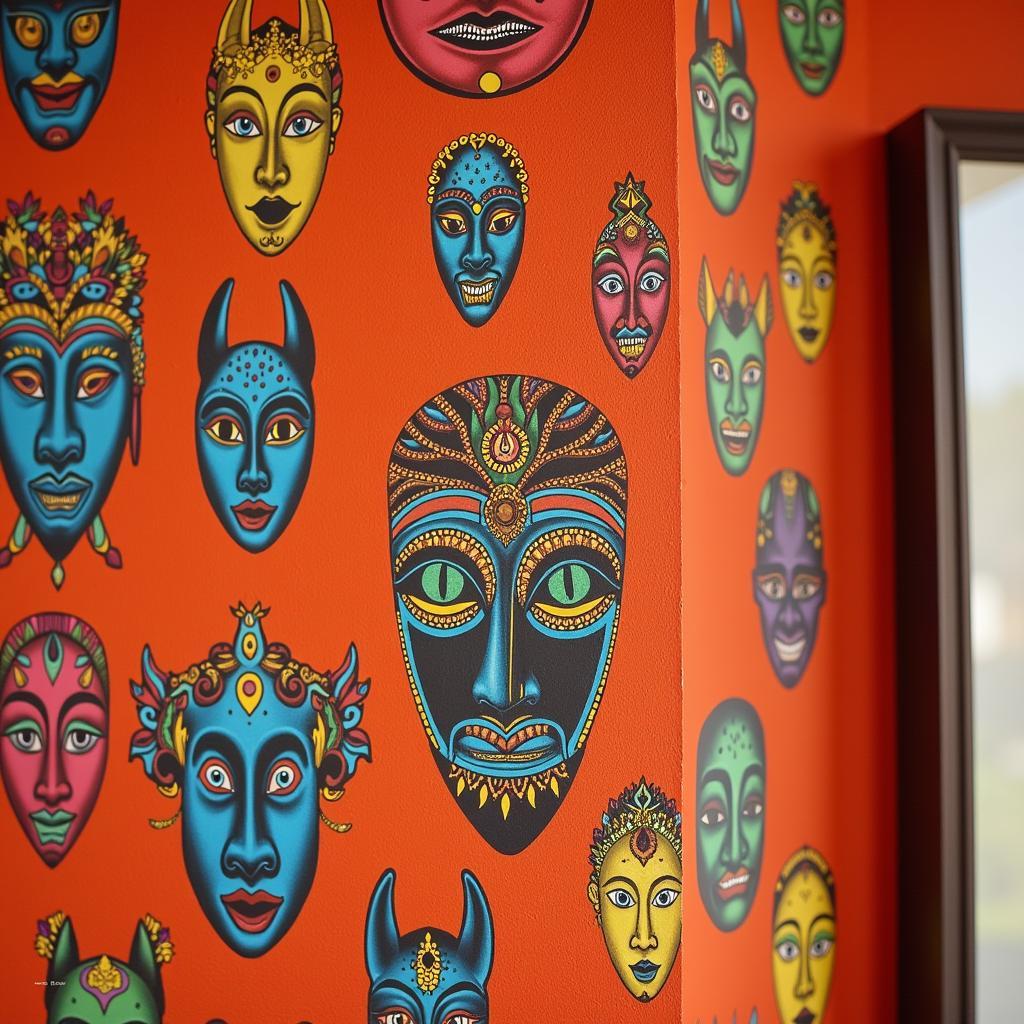Discovering the Soul of a Continent: Your Guide to the African Corner
From the vibrant markets of Marrakech to the sweeping savannas of the Serengeti, Africa captivates the imagination with its diverse tapestry of cultures, landscapes, and experiences. An “African Corner” offers a glimpse into this mesmerizing world, a curated space where the continent’s rich heritage and modern dynamism intertwine.
What Defines an African Corner?
An “African corner” is more than just a collection of objects; it’s a celebration of African identity. It can be a physical space within a home, a museum exhibit, a dedicated section in a shop, or even a digital platform showcasing the continent’s diverse offerings.
Imagine stepping into a room adorned with hand-carved wooden sculptures from West Africa, each telling a story passed down through generations. The air is filled with the rhythmic beats of traditional instruments like the djembe and kora, transporting you to the heart of a celebratory dance. Intricately patterned fabrics, like the iconic kente cloth from Ghana, adorn the walls, showcasing the continent’s mastery of textile arts.
Exploring the Multifaceted Aspects of an African Corner
The beauty of an “African corner” lies in its ability to reflect the multifaceted nature of the continent itself. Here are some key aspects that often find a place within these curated spaces:
- Art and Craftsmanship: From the intricate beadwork of the Maasai people to the bold, colorful paintings of contemporary artists, African art is a powerful form of expression.
- Music and Dance: Music is the lifeblood of Africa. Each region boasts its own unique rhythms and instruments, reflecting the soul of its people.
- Literature and Storytelling: Africa has a rich oral tradition, with folktales, myths, and legends passed down through generations.
- Fashion and Textiles: African fashion is making waves globally, known for its vibrant colors, bold prints, and innovative designs.
- Food and Cuisine: From the spicy flavors of West African Jollof rice to the aromatic tagines of Morocco, African cuisine tantalizes the taste buds with its diverse flavors and ingredients.
The Significance of an African Corner in a Globalized World
In today’s interconnected world, creating an “African corner” goes beyond aesthetics; it’s a powerful statement of cultural appreciation and a means of preserving heritage.
- Bridging Cultures: These spaces provide a platform for cultural exchange, fostering understanding and appreciation for the diversity of the African continent.
- Empowering Local Communities: Supporting African artists, artisans, and businesses helps sustain traditional crafts and contributes to economic growth.
- Challenging Stereotypes: An “African corner” disrupts stereotypical narratives about the continent, showcasing its rich history, creativity, and resilience.
Creating Your Own African Corner
You don’t need to travel across the continent to experience the magic of Africa. Here are some ideas for incorporating an “African corner” into your own life:
- Start with a statement piece: A striking piece of art, a colorful textile, or a handcrafted sculpture can serve as a focal point.
- Incorporate natural elements: Use materials like wood, woven baskets, and clay pottery to evoke the earthy tones and textures of the African landscape.
- Embrace vibrant colors: African culture is known for its bold use of color. Don’t be afraid to experiment with rich hues and patterns.
- Support ethical sourcing: When purchasing items for your “African corner,” look for fair trade and ethically sourced products that support local artisans and communities.
Creating an “African corner” is an enriching journey of discovery, allowing you to connect with the continent’s soul on a personal level. It’s a celebration of heritage, a platform for cultural exchange, and a reminder of the beauty and diversity that make Africa so captivating.
